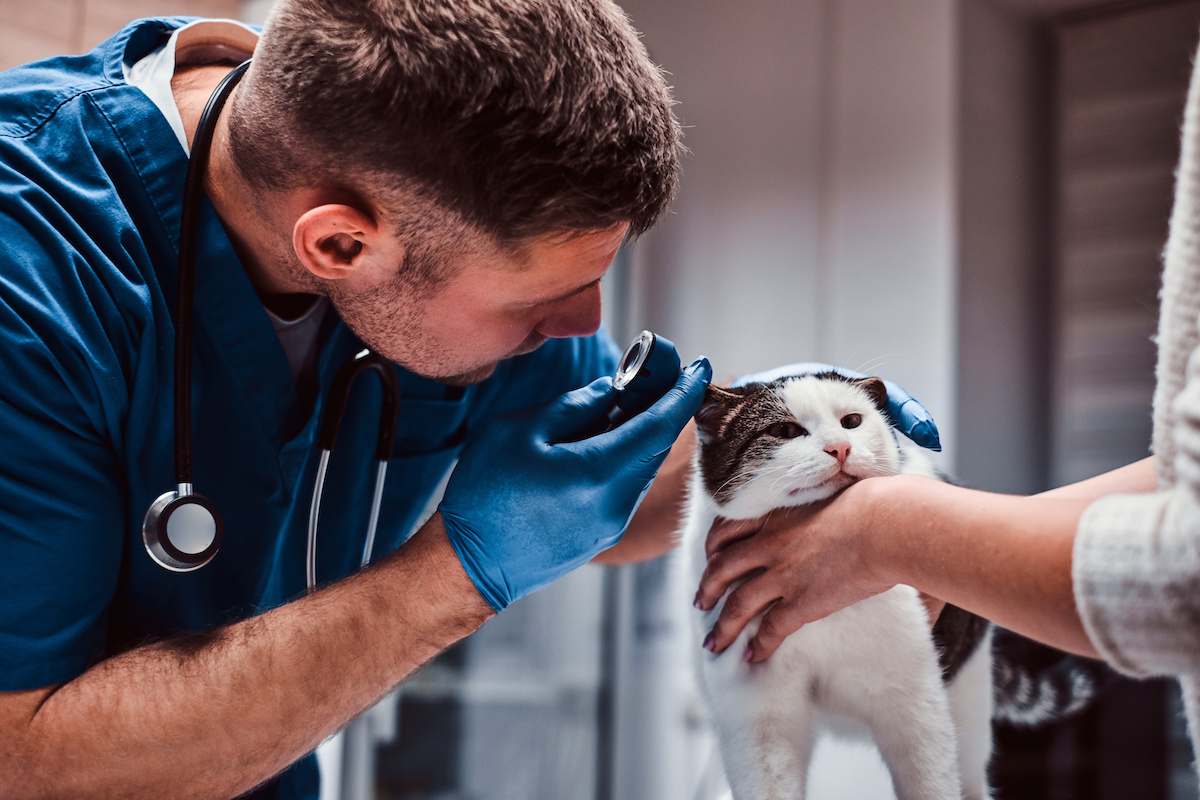Vaccination Guidelines From Your Trusted Veterinarian
Vaccination standards offered by your relied on vet play a crucial function in protecting your pet dog's wellness and well-being. Furthermore, addressing common false impressions surrounding vaccinations can further enhance pet owners' self-confidence in these preventative procedures.

Significance of Vaccinations
Inoculations play a critical duty in securing family pets against a series of avoidable conditions. By promoting the immune system to identify and combat particular pathogens, vaccinations dramatically minimize the occurrence of transmittable conditions that can affect an animal's health and longevity. Not just do inoculations shield private animals, yet they likewise add to herd immunity, thereby reducing the general occurrence of illness in the pet populace.
Timely vaccinations aid to alleviate the spread of diseases such as rabies, parvovirus, and distemper, which can have serious repercussions for both human beings and family pets. Vaccinations are often a requirement for boarding centers, brushing services, and pet dog parks, making them vital for those that wish to socialize their animals.

Core Injections for Pet Dogs
While the details vaccination demands of animals can vary based upon individual elements, core vaccines are widely suggested to secure versus one of the most major and common diseases (Pet Health Checkup). Core injections are those regarded vital for all family pets, despite their way of living or geographic place, as they guard against potentially fatal and extremely transmittable diseases
For pet dogs, the core injections consist of those for canine distemper, parvovirus, adenovirus (liver disease), and rabies. Adenovirus can result in liver disease, while rabies is a zoonotic illness that postures a risk to both animals and people.
In cats, core injections include feline panleukopenia, feline calicivirus, feline herpesvirus (rhinotracheitis), and rabies. Feline panleukopenia is a very transmittable viral disease that impacts the immune system and intestinal tracts. Calicivirus and herpesvirus are significant contributors to upper respiratory system infections in felines, while rabies remains a critical problem for public health.
Talk to your vet to guarantee your animals get their core vaccinations on routine.
Non-Core Vaccines Explained
Non-core vaccinations are tailored to address particular dangers related to a family pet's direct exposure, lifestyle, and environment to particular illness. Unlike core injections, which are generally advised for all animals, non-core injections are thought about based upon individual situations. These vaccines are specifically important for family pets that may experience special microorganisms because of their geographical area, traveling habits, or tasks.
Instances of non-core injections include those for Bordetella bronchiseptica, which is connected to kennel cough, and Lyme illness, triggered by ticks. Animals that frequently connect with other pets, such as those in boarding centers, pet parks, or brushing settings, may profit from Bordetella vaccination. In a similar way, if you live in a location where Lyme condition is widespread, immunizing my review here against this condition can be a prudent selection for outdoor-loving pet dogs.
Various other non-core vaccines might consist of those for leptospirosis, canine influenza, and feline leukemia, depending upon the specific risk factors present. It is important to have a complete discussion with your veterinarian about your family pet's lifestyle and the possible requirement for these injections, guaranteeing a customized vaccination strategy that best secures your fuzzy pal.
Vaccination Schedule Review

As family pets develop, it is essential to comply with the advised booster vaccinations. Emergency Vet. For grown-up pets, core injections are commonly given each to three years, depending upon the particular injection and local guidelines. Non-core vaccinations might be encouraged based on way of living elements and regional illness occurrence, demanding a customized approach
Regular vet examinations are important for updating inoculation schedules. Your vet can give advice on the most suitable booster shots for your animal, considering age, wellness condition, and environmental dangers. By staying positive and informed, pet dog owners can ensure their fuzzy companions get prompt and effective inoculations, thus guarding their health and well-being throughout their lives.
Usual Myths Regarding Vaccines
Misconceptions about pet vaccinations can result in confusion and hesitation among pet owners relating to the booster shot process. One prevalent misconception is that injections are unnecessary for indoor pet dogs. While it holds true that indoor animals deal with reduced risks, they are not totally unsusceptible to conditions, as microorganisms can be presented via various ways, including human apparel and various other pets.
An additional misunderstanding is that vaccinations can trigger the conditions they aim to stop. In truth, a lot of vaccines have inactivated or undermined microorganisms, which can not create condition in healthy animals. Some family pet proprietors likewise think that their pet dogs must not be vaccinated if they are currently healthy; however, inoculations are a proactive step that helps prevent my latest blog post the beginning of disease.
In addition, numerous animal owners fear that vaccinations will certainly lead to lasting wellness issues. While negative effects can happen, they are short-lived and usually mild. The benefits of inoculation-- safeguarding animals from potentially life-threatening conditions-- far exceed the threats. Understanding these common misconceptions is essential for responsible pet ownership and ensuring the health and safety and security of your hairy companions. Always consult your vet for exact details customized to your family pet's details demands.
Verdict
In summary, adherence to inoculation guidelines is critical for guaranteeing the health and longevity of pet dogs. Core injections supply necessary protection versus serious conditions, while non-core injections deal with particular threats based upon private lifestyles. Developing a detailed inoculation schedule, combined with normal vet exams, facilitates optimum wellness management. Dispelling typical myths surrounding inoculations additionally enhances the significance of notified decision-making in pet treatment. Eventually, a proactive technique to vaccinations is essential for preserving family pet well-being.
Not only do inoculations secure individual animals, but they likewise contribute to herd resistance, consequently reducing the general prevalence of illness in the family pet population.
Misunderstandings concerning animal inoculations can lead to complication and reluctance among pet proprietors pertaining to the immunization procedure. While it's true that interior pet dogs deal with reduced dangers, they are not completely immune to diseases, as pathogens can be presented via different means, consisting of human apparel and various other animals.
Some family pet owners additionally think that their family pets ought to not be immunized if they are already healthy; nevertheless, vaccinations are a positive action that aids avoid the onset of ailment.
The advantages of inoculation-- safeguarding pets from potentially life-threatening diseases-- much surpass the threats.